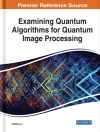This book covers the essential theory and implementation of popular Bayesian optimization techniques in an intuitive and well-illustrated manner. The techniques covered in this book will enable you to better tune the hyperparemeters of your machine learning models and learn sample-efficient approaches to global optimization.
The book begins by introducing different Bayesian Optimization (BO) techniques, covering both commonly used tools and advanced topics. It follows a “develop from scratch” method using Python, and gradually builds up to more advanced libraries such as Bo Torch, an open-source project introduced by Facebook recently. Along the way, you’ll see practical implementations of this important discipline along with thorough coverage and straightforward explanations of essential theories. This book intends to bridge the gap between researchers and practitioners, providing both with a comprehensive, easy-to-digest, and useful reference guide.
After completingthis book, you will have a firm grasp of Bayesian optimization techniques, which you’ll be able to put into practice in your own machine learning models.
What You Will Learn
- Apply Bayesian Optimization to build better machine learning models
- Understand and research existing and new Bayesian Optimization techniques
- Leverage high-performance libraries such as Bo Torch, which offer you the ability to dig into and edit the inner working
- Dig into the inner workings of common optimization algorithms used to guide the search process in Bayesian optimization
Who This Book Is For
Beginner to intermediate level professionals in machine learning, analytics or other roles relevant in data science.
Tabela de Conteúdo
Chapter 1: Bayesian Optimization Overview.- Chapter 2: Gaussian Process.- Chapter 3: Bayesian Decision Theory and Expected Improvement.- Chapter 4 : Gaussian Process Regression with GPy Torch.- Chapter 5: Monte Carlo Acquisition Function with Sobol Sequences and Random Restart.- Chapter 6 : Knowledge Gradient: Nested Optimization versus One-shot Learning.- Chapter 7 : Case Study: Tuning CNN Learning Rate with Bo Torch.
Sobre o autor
Peng Liu is an assistant professor of quantitative finance (practice) at Singapore Management University and an adjunct researcher at the National University of Singapore. He holds a Ph.D. in statistics from the National University of Singapore and has ten years of working experience as a data scientist across the banking, technology, and hospitality industries












